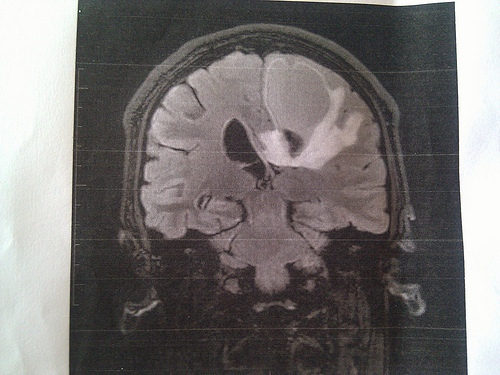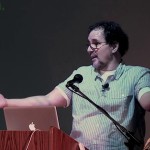We run our website the way we wished the whole internet worked: we provide high quality original content with no ads. We are funded solely by your direct support. Please consider supporting this project.

Why Did God Heal or Not?
In 1996 a 27-year-old man in my church named David was diagnosed with an inoperable brain cancer. The doctors decided to send David to the Mayo Clinic to receive some experimental treatments on the slim hope these might at least prolong his life. The night before David left, I and a dozen other people went over to his house to pray. For over two hours we engaged in fervent warfare prayer on his behalf, revolting in Jesus’s name against the cancer and anything in the spirit realm that might be involved in it.
Two days later I received an elated call from David. The doctors at the Mayo Clinic could not find any trace of cancer!
Of course, the mayo clinic staff insisted that David’s local doctors must have misread his brain scans, but his local doctor said this wasn’t possible. The mystery was never resolved, which was fine with us. We just praised God that he was set free from a life-threatening infirmity that ultimately is traceable back to Satan’s oppressive regime.
But we must be honest. As impressive as this event was, it’s possible nothing supernatural occurred. Despite their insistence to the contrary, David’s doctors may have misread his brain scans, and it’s possible David’s cancer went into “spontaneous remission.” But these seem very unlikely. And since I have good reason for believing Jesus is the son of God and that his followers are supposed to be able to affect things through the power of prayer, I feel justified calling David’s healing miracle.
Now, in the interest of full disclosure, and to illustrate how arbitrary life sometimes this, I’m compelled to add the sad fact that three years after his miraculous healing, David’s brain cancer returned. And this time he wasn’t healed.
I admit that this is theologically disturbing. But I don’t think this invalidates the miracle. For all we know, Lazarus may have died three years after Jesus raised him from the dead, perhaps from the very disease that killed him the first time (John 11:1–46). All healings this side of heaven are temporary signs of the coming age when all forms of infirmity will be permanently overcome. Until the kingdom comes in its fullness, we will all eventually die. The very last enemy that will be overcome is death (1 Cor 15). So David’s death doesn’t undermine the genuineness of the healing.
But it does illustrate how mysterious and seemingly arbitrary life is. Why was healing prayer effective in one instance but not in another, when we were revolting against the same illness in the same person? It’s impossible to say. Yet, as I said in yesterday’s post, it’s important we understand why we can’t understand this. It’s not because God’s will or character is so mysterious. It’s rather because we live in an unfathomably complex creation.
We don’t need to blame the arbitrariness of life on God. Nor do we need to try to explain away this arbitrariness by claiming some people have sufficient faith while others don’t. We simply need to respect the impenetrable ambiguity of an unfathomably complex creation and confess, as finite human beings, that “we don’t know.”
Image by mathrock via Flickr
Category: Q&A
Tags: Faith, Sickness, Spiritual Warfare, Warfare Worldview, healing
Topics: Faith & Doubt, The Problem of Evil
Related Reading

Ralph D. Winter Lectureship
Greg has been invited to give this year’s lectures for “The Ralph D. Winter Lectureship,” this April 25 and 26. Greg’s lectures will be on the Biblical Warfare Worldview and its implications for understanding evil, especially “natural” evil and for our understanding of the Christian Life and missions. Greg will also join a panel of…

Secret Doubt
J L via Compfight We don’t usually do this, but Jessica Kelley (Henry’s mom) over at Jess in Process wrote a piece about her struggles with doubt, and we got her permission to reprint it in its entirety. She perfectly represents the basic premise of Greg’s upcoming book Benefit of the Doubt. Thanks Jess! Secret…

Theo Graff Podcast: Featuring Jessica Kelley
We have a special treat for you today. T. C. Moore is a great friend of ReKnew and he’s recently started a “Jesus-centered, hip hop flavored, geeky, theological, kingdom exploration” called the THEO GRAFF PODCAST. He’s published four podcasts so far and you’ll want to listen to them all when you get a chance, but we wanted…

The Warfare Worldview
The Warfare Worldview from Roberta Winter Institute on Vimeo. Here’s a video presentation that Greg did at the Roberta Winter Institute regarding the Warfare Worldview. Enjoy!

Are angels involved in answering prayer?
READER: In Daniel 10 we read of an angel telling Daniel that he was delayed from giving him the answer to his prayer because of spiritual warfare going on. My question is, are angels always involved in answering our prayers?

Believing the Best About Political Opponents
The surprising election of Donald Trump to President of the United Stated has exposed a profound, anger-filled divide running through the center of the American population. I would like to speak to the many Christians who are on the side of the divide that is outraged by his victory. In light of the offensive things Trump…
